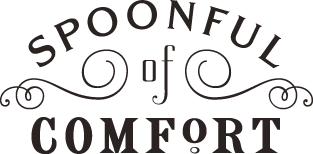5 Ways to Make the Most of Administrative Professionals
Making the Most of Administrative Professionals
Administrative Professional Day is one of our favorite celebrations at Spoonful of Comfort. For starters, we have the pleasure of working with countless executive assistants (EAs) and other administrative professionals as part of our corporate gifting service.
As we help fulfill orders for sympathy gift baskets, get well packages, customized marketing gifts, or (rather impressive!) holiday gift lists, we’ve come to know many of these professionals on a first-name basis. So it’s not a stretch when we give a shout-out to some of our favorite peeps during Administrative Professionals week!
More than knowing and loving these individuals who are an essential part of our business, we also have come to know and appreciate the essential roles they play in their businesses. We see first-hand the many hats EAs wear in organizations of every size. And we are constantly impressed with the number of skills brought to the table.
That got us thinking.
Being a small business, Spoonful of Comfort expects our own employees to wear a lot of those hats. And some of the team members who have been with us the longest have backgrounds in administrative professional roles.
So what’s the secret sauce that has helped elevate their responsibilities in our company? And how can EAs in other organizations expand their career growth, too? After some good conversations, some in-field research, and a little self-reflection, the answers we found are what this article is all about.
Why It’s Important to Develop Administrative Professionals
It seems there’s an underlying perception that perhaps companies wouldn’t want to develop or promote good administrative assistants—because they’re so good right where they are! While this might suggest that executives do indeed value their admin team, the approach to keep people in place is actually short-sighted.
Consider these reasons for supporting skill development among administrative professionals and supporting upward career moves:
- Executive Assistants know the company. Few positions in a company have the same opportunities to get a big-picture perspective of the organization. Working closely with executives often gives administrative assistants a good understanding of business strategy, products and services, various departments, and where the company is headed.
- Promoting administrative assistants from within makes for smart ROI. It makes sense to invest in a staff that’s invested in the company. When you promote administrative professionals into new departments and positions, you’ll likely strengthen that person’s loyalty to the company. That in turn improves company culture while lowering the cost of recruiting and training.
- Great assistants attract other great assistants. Let’s face it. Word about your company gets around. And when organizations support an environment where high-quality employees can learn and grow, it attracts more high-quality employees. According to Gallup research, on-going job training is a top factor for job seekers. By walking the walk, you’re more likely to get better job candidates in the first place.
It makes sense, then, to make the most of people in administrative roles. But let’s face it. These are often some of the busiest people—who are supporting other very busy people!
Developing administrative talent takes proactive attention, both from the individuals who want to expand their responsibilities, and from the workplace that stands to benefit.
Here are five ideas about how to support and achieve administrative professional growth and development.
1. Set short-term professional growth goals.
If you’re an administrative professional, think of one or two skills you can you improve in the next six months. Is there new software you’d like to learn? An area of the business you’re curious about? Do you have personal skills you’d like to brush up on or start from the beginning? Is there a pro bono project you can tackle to gain experience?
Personal development resources have never been more plentiful. Once you identify the area of growth you’d loke to focus on, dive into books, articles, and podcasts. You might be surprised with the number of webinars available on different topics. You might also consider evening and online classes through community education programs, universities, professional organizations, and more. If you’re not familiar with LinkedIn Learning, check out its incredibly deep pool of educational courses. Your company might be willing to pay for many of these development opportunities.
Speaking of which, if you’re an executive or boss of an administrative professional, start by talking about professional development goals throughout the company. Hopefully this was addressed in an administrative professional’s hiring interview. Even if it wasn’t, take time to learn what this team member wants to achieve. Be clear communicating about additional skills that could support you better. And look for ways you can actively support this development.
2. Nurture and grow professional networks inside the office and out.
Administrative assistants can gain tremendous insight from contacts within their organization already. Don’t take these relationships for granted. By getting to know the people you come into contact through your job responsibilities, you can likely put together a list of potential mentors who can expose you to new ideas and skills.
Many leaders inside an organization are happy to share what they do—but don’t expect them to do all the work. Be prepared to ask smart questions. Have a goal for your conversations and be respectful of their time. Know what you want to learn and ask this person how they can help you get more knowledge.
If you’re someone being tapped for insight from an EA, consider company needs and how this person might help meet them. Mentorship, no matter how small, is an excellent way for organizations and mentees to discover interests and talents. Everyone wins when being exposed to new ideas.
Administrative professionals can develop networks and relationships outside their companies, too. Sharing best practices helps you stay up on what’s new in administrative skills and approaches. You might find ideas from completely different industries that you could apply to your company, too.
Even virtual networks can be a great source of ideas and support. Consider joining a professional organization like the American Society of Administrative Professionals (ASAP) or the amazing Leader Assistant Community. LinkedIn also has terrific communities like Administrative Assistant Office Professionals (187K+ members) or International Association of Administrative Professionals (42K+ members). And be sure to check out this curated list of books for assistants for some great reads.
3. Document specific skills and accomplishments.
It’s important for every administrative professional to know their individuals strengths—and they’re going to be different from anyone else in the same position. Take time to reflect on what you do and what you’re really good at.
Be able to summarize 3-4 key skills and support them with a few examples. Then write them down. For example, showing that you were able to successfully arrange a last-minute virtual meeting for 30 people across several time zones is excellent proof of your organizational and communication skills. Having a record that shows how you oversaw the document editing and production of new presentation materials is like writing your resume for a project management position.
If you’re an executive that’s benefited from someone’s skills and accomplishments, write a quick note of thanks or submit a memo to HR noting this person’s achievements.
4. Evaluate what admin pros are really doing
Keeping a growing record of skills is a natural talking point for workplace evaluations. And there’s no reason performance reviews need to take place on a predetermined schedule!
If you’re an administrative professional, consider writing regular 1-2 page updates to inform your boss of your achievements. Likely these won’t be a surprise. But a regular accounting keeps the line of communication open, keeps your name top of mind with leaders, and helps avoid the frustration of feeling like the organization doesn’t know or appreciate what you do. (Maybe they simply aren’t aware!)
Tracking and evaluating the accomplishments of administrative professionals may accomplish career development in and of itself. As people grow into additional responsibilities, they likely begin to perform more than their job description originally stated. Doing a bigger job is the foundation for bigger pay and benefits—and bigger opportunities.
5. Create opportunities to stretch people and possibilities.
Developing a company’s administrative team brings benefits across the board. But it won’t happen spontaneously. Executive assistants increase their value by stretching themselves with new responsibilities and tasks. Don’t be afraid to request leadership of a project. Set forth the goals, deadlines, and key players—then deliver the results. As you demonstrate your ability to achieve, you’ll gain the trust to be delegated more (see tip #4!).
Leadership can forget to make the most of the talent that’s right in front of them, too. Be cautious to avoid processes that simply repeat the status quo. Instead, be on the lookout for hidden talents and for people who want to expand their role in the company.
Development for One Is Development for All
Administrative professionals are a powerful force behind any organization (Spoonful of Comfort is no exception). They’re a powerful force for future successes, too!
Celebrating Administrative Assistants Day is an annual reason to recognize and appreciate these essential individuals. We hope it becomes a reminder to create an environment that helps admin pros—and the companies they work for—live up to their greatest potential.

